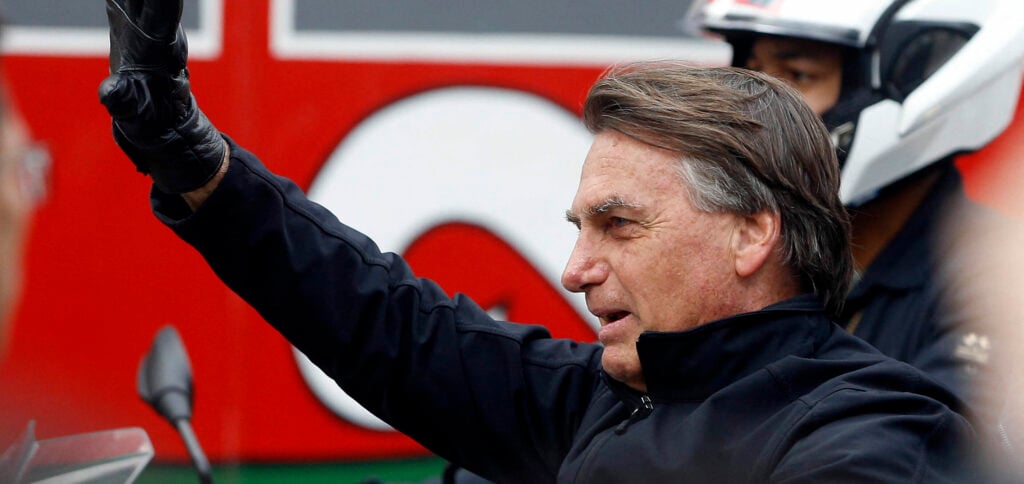The scenario repeats the trend already observed in 2018. In October of that year, the Google recorded the highest number of searches for the term “communism” in the last 18 years. In 2022, the term appears again with a growth trend. This year, there was a peak of interest in February, when Bolsonaro compared communism to Nazism and defended its criminalization. And it starts again at the official start of the campaign, on August 16, when users search, for example, if Lula is a communist.
ADVERTISING
This year, pastors and Bolsonaro supporters also associate the idea that the left is linked to “atheism”. This movement was noticed by the campaign of Luiz Inácio Lula da Silva (PT), who produced a video to mock the “ghost of communism”, highlight his government's actions in favor of religious freedom and contest the statement that Lula would close churches if elected. .
On Instagram, there were spikes in citations to the topic on August 16th and 22nd, the date on which Bolsonaro participated in a hearing on TV Globo's Jornal Nacional. The total number of posts reached 4,6 thousand. On Twitter, communism was mentioned 680 times between August 16 and September 23, according to data from the Estadão Network Monitor.
In addition to September 7th, the biggest spike in mentions occurred on the 10th and 11th of that month, when player Lucas Moura, from the English football team Tottenham, associated Lula with socialism and communism. On Facebook, there were 5 thousand publications in the week of September 7th, out of a total of 35 thousand collected throughout the electoral period.
ADVERTISING
“The politics of fear is decisive in this entire process. It follows this language and acquires a more or less aggressive connotation over time”, said political scientist at the Federal University of Rio de Janeiro (UFRJ) Daniela Mussi.
For Eugênio Bucci, professor at the School of Communications and Arts (ECA) and academic coordinator at the Institute of Advanced Studies (IEA) at USP, lack of knowledge fuels the dissemination of messages. “These groups that feed the fear of communism have in common the characteristic of not knowing what communism is. There's not much to hope for if this kind of thing is resolved with some kind of censorship. Not at all,” he said.
The movement on the networks follows the position of the president, who in his speeches often says that he asks God that the country “not experience the pain of communism”. For researcher at the Universidade Federal Fluminense (UFF) Viktor Chagas, it is a term “completely emptied of meaning”. “The meaning doesn’t really matter, because it is used in a way that creates a negative image of the opponent,” he said. In 2018, Chagas' research group identified that the term used to circulate more frequently on days when research and news unfavorable to Bolsonaro were released.
ADVERTISING
radicalization
In WhatsApp and Telegram groups, anti-communist rhetoric tends to be more radical, with conspiracy theories related to the electoral period and calls for military intervention to “free the Brazilian people”. A survey by the Federal University of Minas Gerais (UFMG) found 3.885 messages on the topic in 485 Bolsonaro groups on WhatsApp and 1.842 in 79 Telegram groups in the last 90 days.
For political scientist Daniela Mussi, the use of the term is increasingly associated with an anti-democratic perspective. “Communism becomes an empty signifier, a kind of packaging where the enemy to be fought is placed. Not only in the sense of ideas, but of its very existence as a political expression,” she stated.
When contacted, WhatsApp stated that offensive and possibly illegal content should be reported to the competent authorities, and that it usually bans accounts and groups immediately based on court orders. Telegram said calls for violence are removed.
ADVERTISING
Twitter said it seeks to strike a balance between the right to freedom of expression and user safety. Facebook and Instagram, for their part, said they do not allow organizations or individuals to “advertise a violent mission” on the platforms. According to the companies, they monitor support for organizations that spread “organized hate”.
(Estadão Conteúdo)






